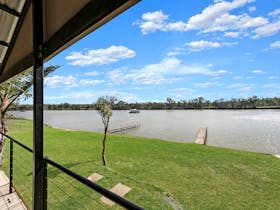
We Found You!!
We have located you in the region.
Navigate to the view diary button to switch to a diary at this location.You can change directories at any time by clicking on the Choose a Region button
Search Community Directory
Swan Reach, South Australia

The area around Swan Reach is renowned for its towering cliffs, including Big Bend – which boasts the tallest cliffs along the entire length of the Murray River. Rich in fossils, flora and fauna, Big Bend is believed to be up to 20 million years old. Swan Reach boasts an excellent hotel with river views and a nine hole golf course. The town also has a 24 hour ferry, general store and boat ramp. The Aboriginal name for this area is Kongorong, which refers to the large number of black swans that live in the area. White settlement was established in 1899 when Swan Reach Station owner Paul Hasse subdivided a portion of his land. Perched on the banks of the Murray, the first half of the twentieth century saw the river fight a constant battle with flood, culminating in the massive washouts of 1917, 1931 and 1956. The most devastating was in 1956, when most of the businesses in the main street were washed away. More than 200 historic photographs from the flood can be seen in the Swan Reach Museum, located in the original school building, circa 1917. The museum has a fascinating collection of memorabilia. One of the themes of the museum’s collection is education within the district, which consists of a large collection of school photographs and memorabilia. The collection extends beyond Swan Reach to include historical items from river and rural communities of Murbko, Boolgun, Maggea, Galga, Copeville, Bowhill, Purnong, Walker Flat, Black Hill, Punyelroo, Blanchetown and settlements within this border. You can find souvenir spoons, fridge magnets, colour 1956 flood postcards and more at the museum shop.
Postcode: 5354LGA: Mid Murray Council